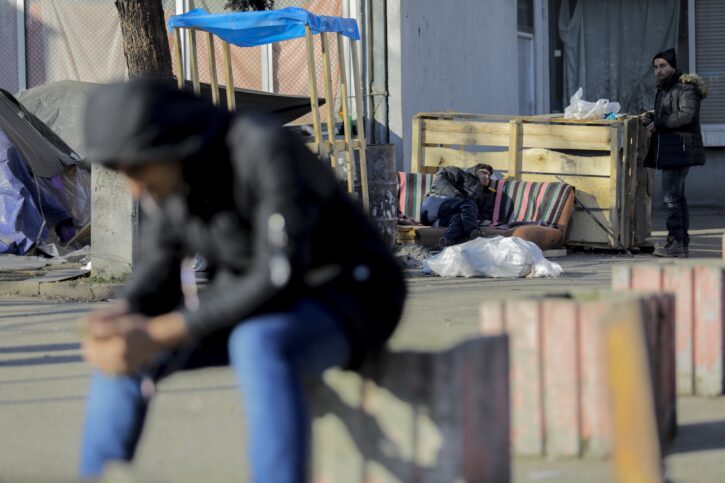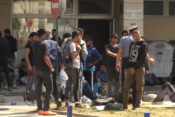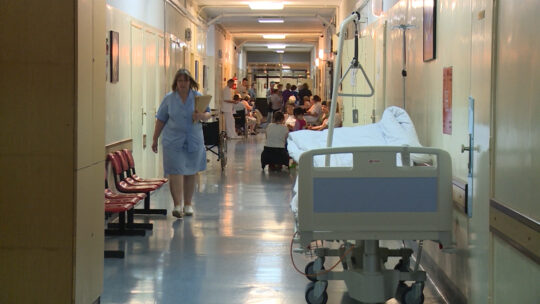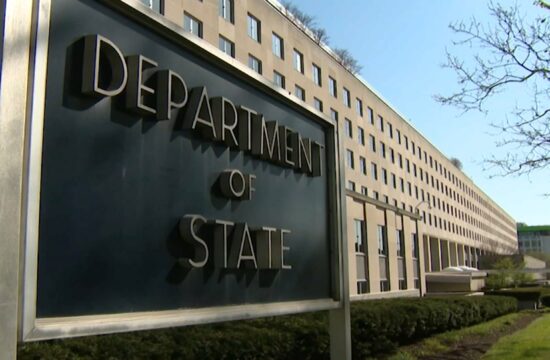
About 200 migrants are now staying at the bus station in the northeastern city of Tuzla, waiting for a chance to continue their path toward EU countries in tents despite sub-zero temperatures, and the only help they get is from volunteers who say "the system is ignoring the problem."
The migrants light fires in an attempt to heat up. They are surrounded by dirt, have no toilets, showers or some of the most basic necessities. The only support they get comes from volunteers.
Mohammed Hassan, from Pakistan, has spent the past month at the bus station.
Hassan explained that he left Pakistan a year ago, then stayed for a while in Turkey, Macedonia and Serbia before coming to Bosnia.
“It’s difficult here, there are a lot of problems, but people give us food and clothes. We are humans too and we need conditions fitting for humans,” he said, adding that he has no idea where to go next.
“I want to continue towards Germany, Italy, Belgium, maybe the UK. Any of those countries. I don’t want to stay in Bosnia and Herzegovina. Look at where we are. Do you think anybody would want to stay here? The situation is terrible here,” he said, adding that he simply wants to “continue his trip” and that he might stay at the bus station no longer than another month.
But all he wants now, he said, is to survive the cold days and nights.
Senad Piric, a journalist who has also been a volunteer at the bus station for the past two years, visits the migrants daily and tries to help as much as he can.
“I drink coffee with them, I hear them out when they tell me about their problems,” he said, arguing that the most important and biggest help to volunteers provide is psychological.
“Our volunteers hang out with them, we invite them to have coffee with us, we take them to concerts and we try to sensitise the community, so people see that these are also humans, with all their good and bad traits,” he said.
How many migrants are exactly staying at the bus station is hard to tell, as the number keeps changing.
“According to the lists we use when we distribute food, there are more than 200 people here, but I think there are more as some don’t stay at the bus station, some stay in abandoned buildings, houses, parks (…) New people arrive daily, some return,” Piric said.
“These people are stuck in Bosnia and Herzegovina and they are only looking for a safe place,” he added.
Piric said that his group of volunteers has been asking authorities for help for the past 18 months but that it has been fruitless.
“The system is ignoring this problem. So we turned to ourselves and NGOs. We established a ‘Free Shop’ as part of our activities in the last five or six months. That is an important activity, as citizens of Tuzla, Tuzla Canton and wider are showing great solidarity, they bring things, clothes, shoes and hygiene products,” Piric said.
The volunteers also set up an improvised clinic.
“That is where they receive first aid. We have a doctor who comes by several times a week. It is all improvised, but somehow we manage to provide all the necessities,” Piric said.
“If it wasn’t for us, this would first and foremost be a humanitarian catastrophe, and then it would become a security catastrophe as well because – imagine when 200 people have nothing to eat, and that happened the day after New Year’s eve,” he said.
The biggest problem is that the people are staying out in the open, he argued, adding that “these conditions are not even fit for animals, not to mention people” and that the tents do not help too much with the cold.
“Various psychological states develop among people in such situations. This happens, as they are here left to fend for themselves, without any oversight or control. Of all the institutions, only the police help us here,” he said.
Piric added that some of Tuzla’s citizens support the volunteers while others do not or “completely ignore the problem.”
“There is a lot of racism, discrimination,” he said.
The migrants receive three meals a day – one from the International Solidarity Fund EMMAUS and the other two from Merhamet, a Bosnian NGO.
“We are here since the beginning of October, although we did step in to help from time to time before that when there were fewer people at the bus station,” said Mirela Ahmetbegovic, from EMMAUS.
“Apart from providing food, we also have a medical team which intervenes in first aid cases. We also organise showers for groups of migrants in the premises of the Baptist Church in Tuzla,” she said.
Ahmetbegovic said her organisation distributes between 150 and 200 meals daily to the migrants.
As the Anadolu Agency team was doing the report, Amra Saljo, another volunteer, showed up at the station with some items a group of women from Gradacac gathered to help the migrants.
“Here we have everything they need during these cold days – bed sheets, jumpers, shoes (…) There is also some money. This is just the beginning. Women from Gradacac collected this. It is humane to help those in need,” Saljo said.







